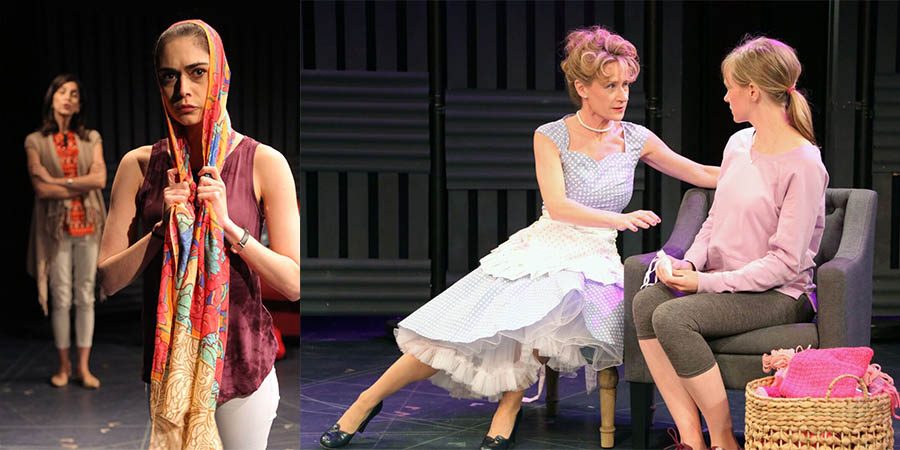

To continually bring new and exciting plays to the forefront of a saturated market is no small feat, but the Ensemble Studio Theatre and the Radio Drama Network’s presentation of their 36th Marathon of One-Act Plays Series C manages to do just that.
After being privy to their Series B line up, Series C did not disappoint. It’s a masterful playwright who can whisk you away, create an arc, and circle back to a satisfying conclusion all in one act, and each of the playwrights in this series manage to do just that.
The evening began with “Female Beginner” by Edith Freni, directed by Jessica Holt. The 18-year-old daughter of a politician is to make a speech at a fundraising dinner, but her upper middle class lifestyle and her family’s local political dynasty cannot wash over her own questioning what is right and wrong on a larger global scale. Freni captures the daddy-daughter relationship with relatable honesty and the piece is well-staged by Holt.
“Santa Doesn't Come to the Holiday Inn,” written by Elyzabeth Wilder and directed by Julie Kramer, presents a unique situation – a divorced couple standing by their arrangement to always have Christmas together for the benefit of their six-year-old daughter. In a cheap motel room, presents are wrapped and cookies laid out for Santa’s arrival while their child lays sleeping. Wilder paints the former couple's relationship with subtle detail without providing details of reason for the disintegration of the marriage, allowing the theme of setting aside personal differences and past hurts for the mutual love for their child to shine.
“Intensive Care” by Donald Marcus is the epitome of a well-structured one-act play and is perfectly directed by Jamie Richards. Two men who are strangers to each other drink coffee in a hospital cafeteria and appear to be awaiting news of the outcome of their wives’ surgeries. Zach Grenier as Joe is hypnotic to watch with a top-notch realistic performance.

“The Good Muslim,” written by Zakiyyah Alexander and directed by William Carden, manages to fit a myriad of scenarios and mediums into one short play. What we think is the play later reveals itself to be scenes from an online game that is being played out by a young Muslim-American college student who is grappling with her own identity and other peoples’ misguided perceptions. The use of technology is particularly impressive.
“Good Results Are Difficult When Indifference Predominates,” written by Amy Fox and directed by Morgan Gould, is a clever yet thoughtful jab at the difference between womanhood from the late '40s to our present day. This play does not take itself too seriously and manages to comfortably and effortlessly float its audience between waves of realism and surrealism, creating a wonderfully entertaining experience.
With the support of what can only be described as some of the best stage-hands in the business, scenes complete with detailed props change effortlessly and transform with professional precision. It is obvious that the richness of each production is aided by extremely skilled and talented lighting, scenic, props, technical, costume, and sound people.